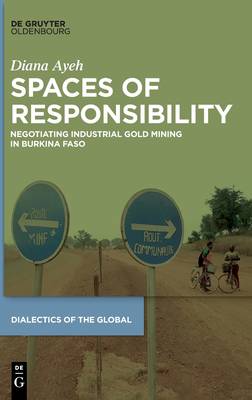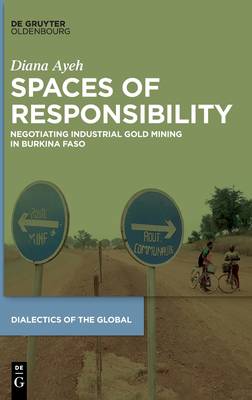
- Retrait gratuit dans votre magasin Club
- 7.000.000 titres dans notre catalogue
- Payer en toute sécurité
- Toujours un magasin près de chez vous
- Retrait gratuit dans votre magasin Club
- 7.000.0000 titres dans notre catalogue
- Payer en toute sécurité
- Toujours un magasin près de chez vous
Description
Spaces of Responsibility explores the role of ethics in (re)ordering extractive relations under the global condition. Through an empirical investigation of actors, places, and ideas in and around Burkina Faso's industrial gold mining sector, this volume carries out an anti-essentialist yet critical examination, offering new insights into global mining capitalism. Corporate concession-making practices, the implementation of (national) mining legislation, and civil society interventions in mining areas all contribute in different ways to the dialectics of the global. Accordingly, the ongoing territorialization of mining investment often has considerable impacts on the well-being of populations in the Global South. At the same time, multinational corporations today cannot completely distance or isolate themselves from the political, economic, and social contexts they are interacting in and with. Drawing on theoretical debates about the links between resource extraction and socio-economic development, multi-scalar negotiations of ethics in mining governance are ethnographically retraced. In terms of gains and benefits, these negotiations manifest themselves spatially, providing access for some actors while excluding others.
Spécifications
Parties prenantes
- Auteur(s) :
- Editeur:
Contenu
- Nombre de pages :
- 368
- Langue:
- Anglais
- Collection :
- Tome:
- n° 10
Caractéristiques
- EAN:
- 9783110689969
- Date de parution :
- 20-09-21
- Format:
- Livre relié
- Format numérique:
- Genaaid
- Dimensions :
- 156 mm x 234 mm
- Poids :
- 693 g

Les avis
Nous publions uniquement les avis qui respectent les conditions requises. Consultez nos conditions pour les avis.






